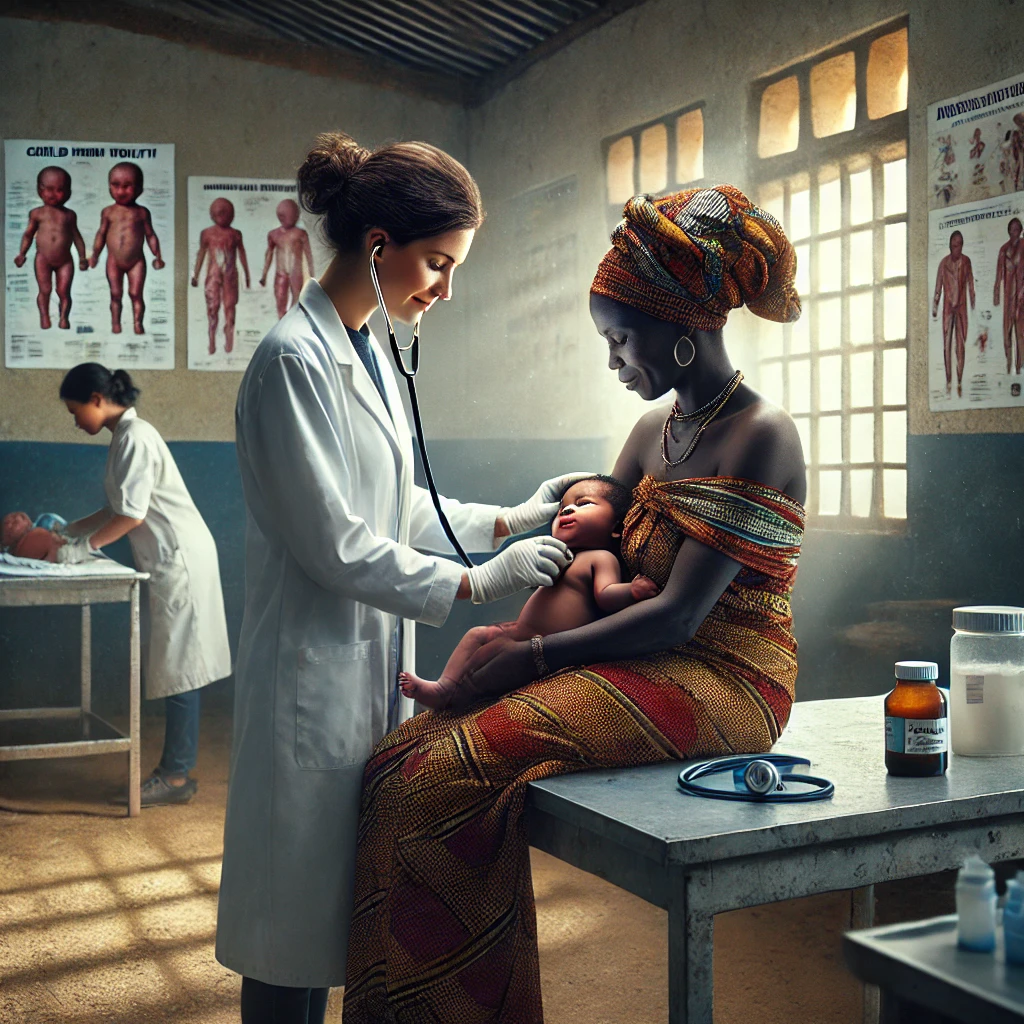95,000 Mothers at Risk as Aid Cuts Threaten Lifesaving Maternal Health Services
UN modelling indicates that universal access to midwifery care could prevent over 4.3 million maternal and neonatal deaths and stillbirths annually by 2035.

- Country:
- Kenya
Tens of thousands of mothers across conflict-affected and impoverished regions may be forced to give birth without the presence of trained medical professionals in the coming year due to major international aid reductions, Save the Children has warned. The global child rights organization estimates that nearly 95,000 mothers it currently supports may deliver babies without skilled healthcare workers unless crucial maternal and newborn health programs are sustained.
Aid Cuts Jeopardizing Critical Health Services
According to Save the Children, widespread global aid cuts have severely impacted its maternal and newborn health programs, particularly in countries like the Democratic Republic of Congo (DRC), Yemen, and Nigeria. These nations, already battling humanitarian crises, now face escalating risks to maternal and infant health due to the withdrawal or suspension of essential services.
The organization notes that services under threat include antenatal care, emergency obstetric support, skilled midwifery, and postnatal care – all of which are proven to dramatically improve survival rates and health outcomes for mothers and babies.
A Global Health Emergency in the Making
Recent figures from the United Nations paint a stark picture: in 2023 alone, more than 700 women and 6,300 babies died every single day due to preventable complications related to pregnancy, childbirth, or neonatal care. Most of these deaths occurred in low- and middle-income countries, where access to healthcare is already limited.
The first minute after birth – known as the "golden minute" – is particularly critical. Timely interventions by trained personnel such as midwives, nurses, or doctors can prevent complications such as:
-
Severe postpartum hemorrhage
-
Infections
-
Fistulas in mothers
-
Neonatal seizures
-
Lifelong developmental disorders in newborns
Evidence Supporting Skilled Midwifery
UN modelling indicates that universal access to midwifery care could prevent over 4.3 million maternal and neonatal deaths and stillbirths annually by 2035. Even a modest 10% increase in midwifery coverage could save 1.3 million lives each year. These findings underscore the urgency of safeguarding and expanding skilled health provider networks, especially in fragile contexts.
The DRC: A Grim Case Study
In the DRC, Save the Children has been running large-scale maternal and neonatal health programs across conflict-affected areas like North Kivu, but these services are now at high risk due to funding shortfalls.
Chantal, an 18-year-old woman who fled armed clashes in early 2024, recently gave birth in a Save the Children-supported hospital after suffering complications during pregnancy. She described how poverty had prevented her from seeking prenatal care until it was nearly too late:
“I couldn’t afford to go for a check-up… I was surprised when they told me I’d be treated free of charge… I don’t know how to express my gratitude.”
Healthcare workers on the ground also report devastating consequences of service disruptions. Margueritte, a nurse at a Save the Children-supported clinic, recalled a woman in distress:
“We referred her to the state hospital, but when she learned she would have to pay, she cried… We are no longer able to offer free care.”
A Call to Action at the World Health Assembly
Moazzam Malik, CEO of Save the Children UK, is attending the 78th World Health Assembly (WHA) in Geneva this week to urge urgent political and financial action:
“It is unconscionable that around 95,000 mothers may give birth without skilled care… Governments must act to rethink health financing, mobilize resources, tax harmful products, and invest in primary care systems.”
Malik emphasized that shrinking aid budgets and rising public debt are undermining progress toward Universal Health Coverage (UHC) and endangering the world’s most vulnerable women and children.
Save the Children’s Global Efforts
Save the Children remains a key actor in maternal and newborn health, operating in 30 countries and reaching 2.1 million women of reproductive age and 1.4 million babies in 2024 alone. Its approach emphasizes training and equipping local health workers and delivering low-cost, high-impact interventions in communities most in need.
The organization is now urging WHA member states to adopt resolutions on strengthening global health financing and accelerating the global health and care workforce by 2030, measures that would help secure the long-term sustainability of vital services.
Without immediate action and renewed funding commitments, tens of thousands of women could face childbirth without the protection of trained professionals—risking death, disability, and trauma for themselves and their newborns.










